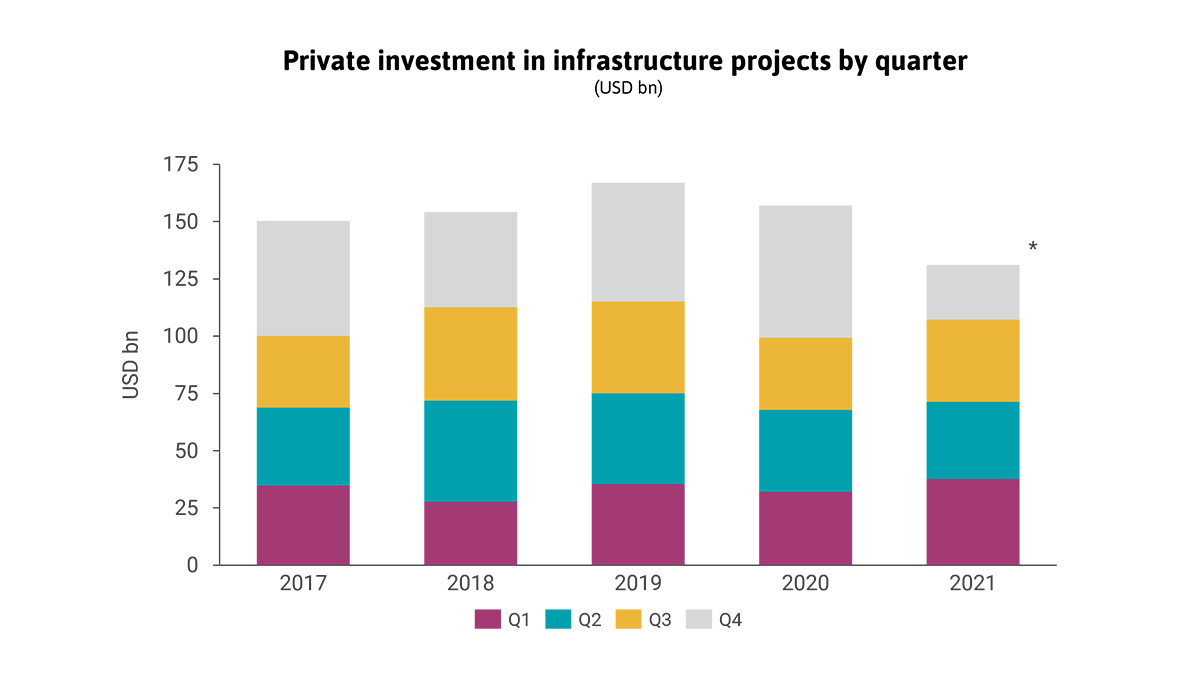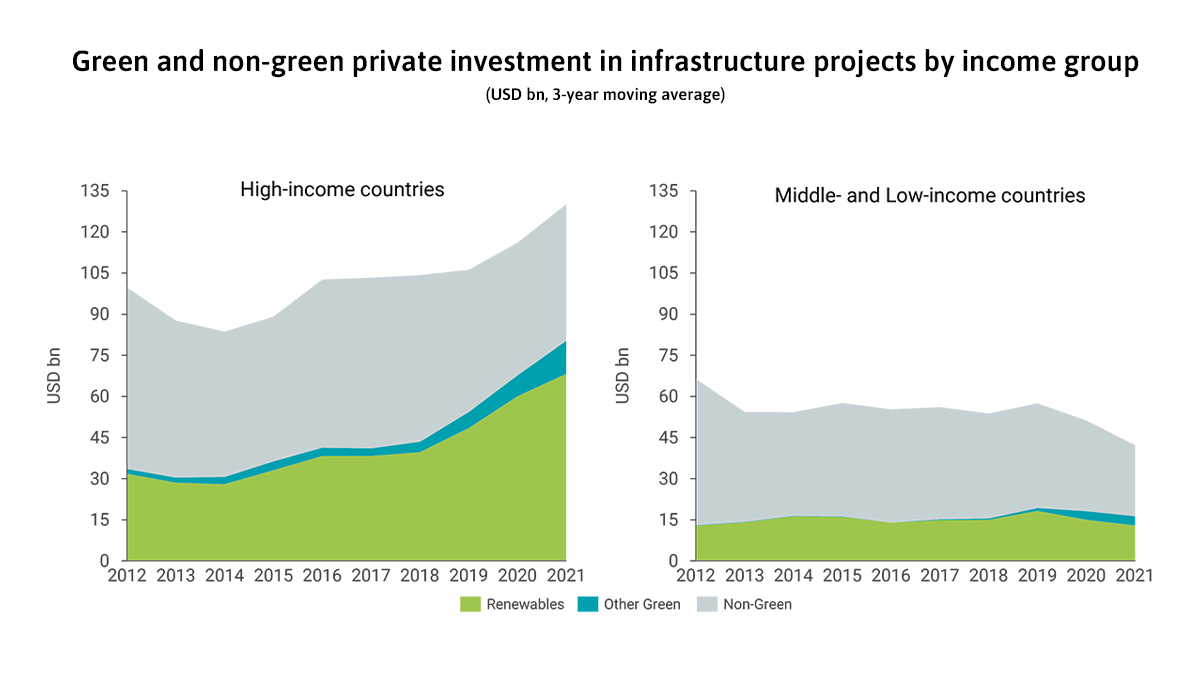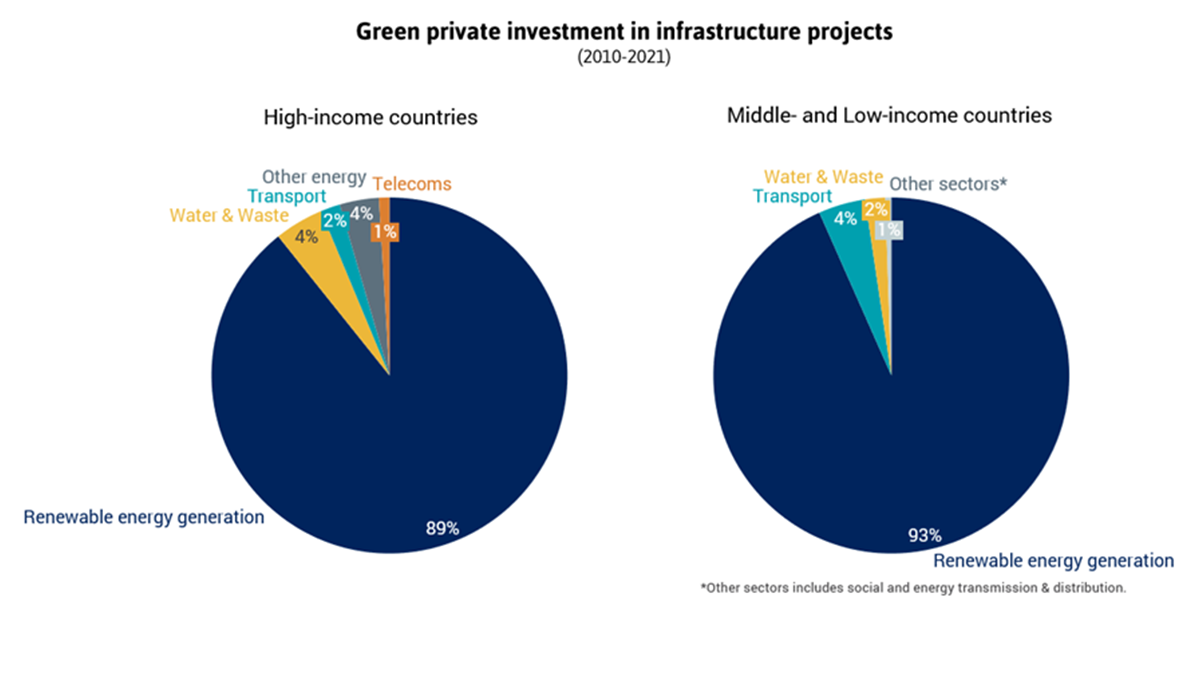1740 results found
Featured results



More results
The report first gives background information on infrastructure prioritization in Panama, then follows with a description of the IPF in technical and implementation terms.

China is considering ways to attract additional capital to finance investment in railways and Worldwide, private capital has been attracted to the railway sector through a range of mechanisms.


This paper examines investments - in the form of equity or debt in direct investments to infrastructure. The reason for focusing on direct investment is twofold. First, the overall analysis of debt and equity capital markets for infrastructure exceeds the scope of this study and involves instruments that trade on regulated stock and bond markets. Second, the analysis of direct investments by private investors in listed infrastructure enables us to focus more on the risk analysis process that these investors typically perform when approaching an investment.

This report gives an overview of the main types of government and market based instruments and incentives able to boost the mobilisation of financial resources to long-term investment.


This report provides a comprehensive overview of digital transformation in Russia, including chapters on the general digital economy in Russia, the global best practice for enhancing digital platforms in Russa and boosting digital innovation.

This publication draws on the Private Sector Participation (PSP) experience of four emerging economies Brazil, Peru, the Philippines, and Turkey based on in-depth case studies by Energy Sector Management Assistance Program (ESMAP).

It addresses the growing worldwide interest in the use of light rail metro transit (LRMT) schemes to provide urban transport solutions and reviews the potential use of public-private partnership (PPP).


In 2021, private investment in infrastructure projects in primary markets recovered to its pre-pandemic level but remains stagnant and far shy of what is needed to close the infrastructure investment gap.



Private investment in infrastructure projects in primary markets was resilient to COVID-19 pandemic shocks



In 2021, global green private investment in infrastructure projects in primary markets rose to a record-high share of 60%, but this trend needs to accelerate and expand beyond renewables to meet climate goals.



Green investment in infrastructure outside of renewables is limited. While renewables represent almost 90% of total green private investments in infrastructure projects, green investment in other sectors only represent 14%.


Cities are at the forefront of the pandemic crisis and are key players in the fight to achieve net-zero emissions targets. The recovery choices they make today will set urban agendas for years to come.
This brief describes how pro-poor approaches to infrastructure go beyond macro-level efforts at poverty reduction, the breif outlines how they target particular activities and populations in relation to energy and water supply.


The procurement guidelines were introduced in April 2015 by ADB. The purpose of these Guidelines is to inform those carrying out a project that is financed in whole or in part by a loan from the Asian Development Bank (ADB), ADB-financed grant, or ADB-administered funds.



This is a summary of policies and procedures governing procurement and selection of consultants in Bank-financed projects.



The NSW Procurement Policy Framework provides a consolidated view of government procurement objectives and the Procurement Board’s requirements as they apply to each step of the procurement process.


Government Procurement Agreement establishes a framework of rights and obligations with respect to laws, regulations, procedures and practices regarding public procurement.

This document provides guidance for users of NEC in determining the procurement and contract strategies to achieve planned outcomes and in the application of contracts from the NEC3 family in meeting these strategies


The Lawrence National Centre for Policy and Management at Western's Ivey Business School was asked by group of firms active in both procurement environments to compare the processes and incentive structures.



Since 2017, Japan has worked towards making public procurement more sustainable, transparent, fair and in line with the UN Guiding Principles on Business and Human Rights.




 Infrastructure Monitor
Infrastructure Monitor


